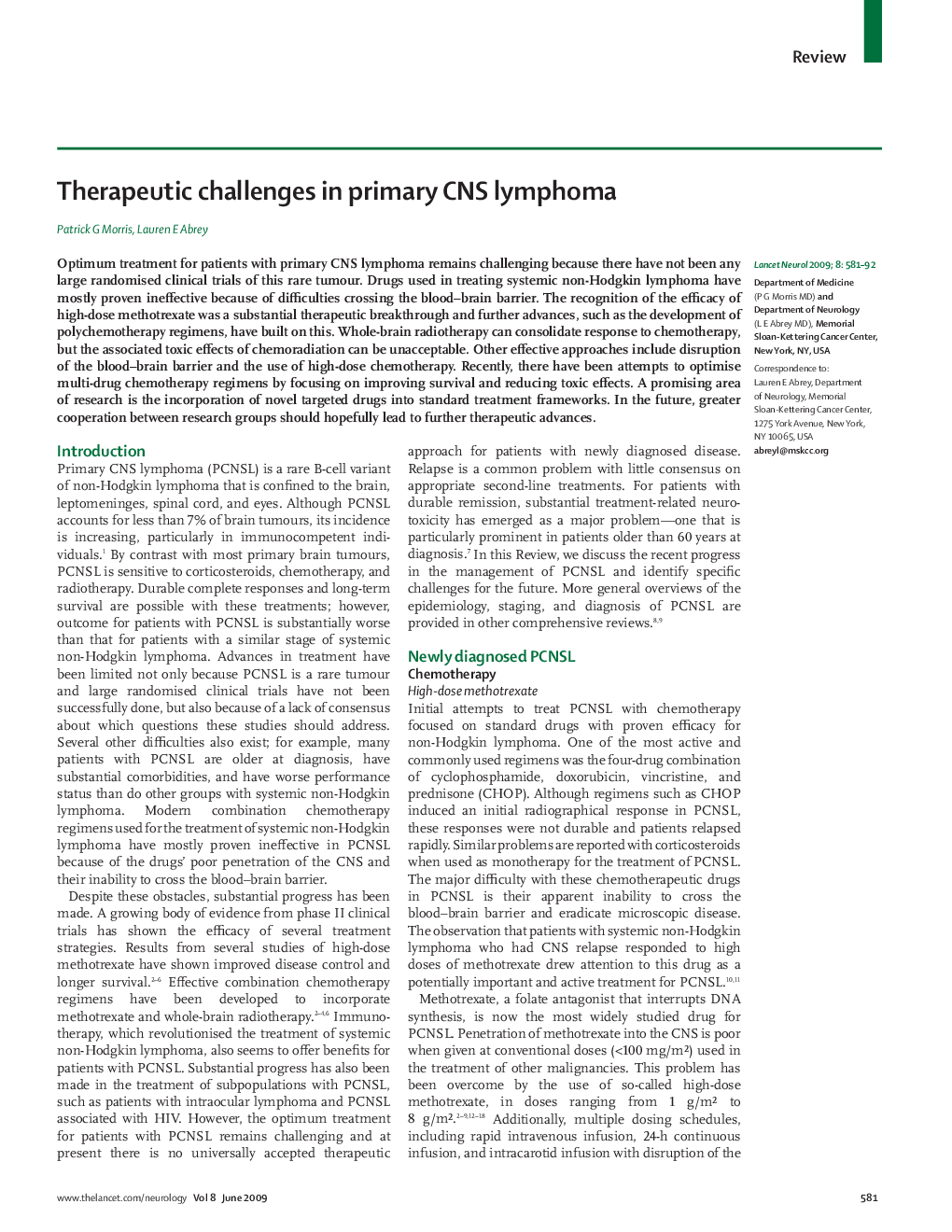| Article ID | Journal | Published Year | Pages | File Type |
|---|---|---|---|---|
| 3067049 | The Lancet Neurology | 2009 | 12 Pages |
SummaryOptimum treatment for patients with primary CNS lymphoma remains challenging because there have not been any large randomised clinical trials of this rare tumour. Drugs used in treating systemic non-Hodgkin lymphoma have mostly proven ineffective because of difficulties crossing the blood–brain barrier. The recognition of the efficacy of high-dose methotrexate was a substantial therapeutic breakthrough and further advances, such as the development of polychemotherapy regimens, have built on this. Whole-brain radiotherapy can consolidate response to chemotherapy, but the associated toxic effects of chemoradiation can be unacceptable. Other effective approaches include disruption of the blood–brain barrier and the use of high-dose chemotherapy. Recently, there have been attempts to optimise multi-drug chemotherapy regimens by focusing on improving survival and reducing toxic effects. A promising area of research is the incorporation of novel targeted drugs into standard treatment frameworks. In the future, greater cooperation between research groups should hopefully lead to further therapeutic advances.
